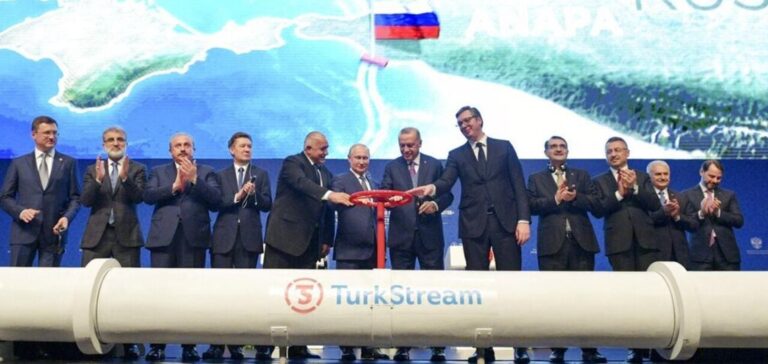Since January 1, Slovakia has no longer received Russian gas via Ukraine due to the expiration of the transit contract signed between Moscow and Kyiv in 2019. In response, the country quickly found an alternative by redirecting its imports through Turkey and Hungary via the TurkStream pipeline. This infrastructure, commissioned in 2020, allows Russian gas to be transported directly under the Black Sea to Turkish territory before being redistributed across Europe.
Partial Resumption of Deliveries
According to Slovakia’s national energy provider Slovenský Plynárenský Priemysel (SPP), Russian energy giant Gazprom has resumed its deliveries to Slovakia via this new route. SPP spokesperson Ondrej Sebesta confirmed that the supply was already in effect and is expected to double in volume by April. SPP CEO Vojtec Ferencz stated that this alternative ensures stability in Slovakian imports despite the disruption of Ukrainian transit.
A Divergent Position Within the European Union
Slovak Prime Minister Robert Fico has criticized the loss of transit rights linked to the Ukrainian gas route and has expressed his intention to maintain commercial relations with Moscow. This stance contrasts with that of most European Union (EU) member states, which have reduced their energy dependence on Russia since the invasion of Ukraine in 2022.
In December, Robert Fico traveled to Moscow to negotiate an energy agreement with Russian President Vladimir Putin, an initiative that sparked large-scale protests in Slovakia. His approach aligns with that of Hungary, where Prime Minister Viktor Orban continues to strengthen energy partnerships with Russia.
TurkStream: A Key Russian Gas Route to Europe
TurkStream is now one of the few remaining export routes for Russian gas to Europe. This 930-kilometer pipeline directly connects Russian reserves to the Turkish grid before supplying several countries, including Bulgaria, Serbia, and Hungary, through its extension, Balkan Stream.
With the end of Ukrainian transit and after the sabotage of the Nord Stream pipelines in the Baltic Sea, Russia now primarily uses this route to export its gas to Europe. Additionally, European imports of Russian liquefied natural gas (LNG) continue despite the ongoing oil embargo imposed as part of sanctions following Russia’s 2022 invasion of Ukraine.
The evolution of Europe’s energy dependence and the alternatives the European Union considers to secure its energy supply remain key topics in the energy market.






















